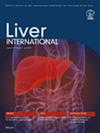Lymphangiogenesis is enhanced during the development of liver cirrhosis and portal hypertension (PHT). However, hepatic lymphatic vascular system is understudied in liver cirrhosis and PHT. Hydrogen sulfide (H2S) and related compounds have potential prolymphangiogenic effects besides its previously reported vascular-protective effects. Therefore, we aimed to investigate the effects of endogenous H2S donor S-allyl-cysteine (SAC) on bile duct ligation (BDL)-induced liver cirrhosis and PHT.
BDL rats with cholestatic liver cirrhosis and PHT were orally administrated with SAC at 100 or 200 mg/kg/day, as well as DL-propargylglycine (PAG) or MAZ-51 injections. Hemodynamic parameters were determined, and subsequent evaluations of liver fibrosis, intrahepatic vascular resistance (IHVR) and lymphangiogensis were performed. Human lymphatic endothelial cells (hLECs) were used for in vitro verification of prolymphangiogenic effects of SAC.
SAC treatment significantly decreased PP and promoted endogenous H2S production. Liver fibrosis and IHVR were also ameliorated. Hepatic and mesenteric lymphangiogenesis were enhanced in BDL rats and further promoted by SAC despite a significant downregulation of hepatic VEGF-C. Inhibition of H2S production by PAG significantly reduced lymphatic vessels, while inhibition of lymphangiogensis by MAZ-51 reversed the protective effects of SAC against PHT. SAC enhanced lymphangiogenic functions in vitro by promoting cellular H2S production and activating Akt phosphorylation without altering VEGF-C/D, which were reversed by PAG and MAZ-51.
SAC significantly alleviated BDL-induced liver cirrhosis and PHT. Meanwhile, elevated H2S induced by SAC facilitated lymphangiogenesis via a VEGF-C-independent manner, which contributed to the alleviation of PHT.


